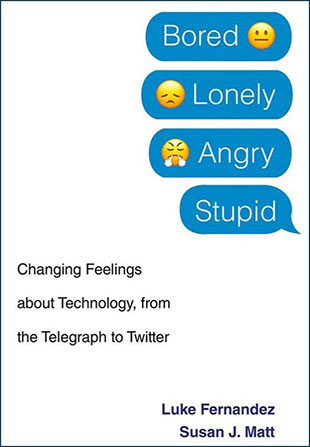Luke Fernandez and Susan J. Matt teach computer science and history respectively at Weber State University in Utah. This ambitious and wide-ranging book covers the ways technology has shaped and transformed our emotional states — narcissism, boredom, loneliness, anger, stupidity, and awe — over the years.
In the nineteenth century, Americans created rituals of self-presentation through words and pictures. The postal system, which made it possible for individuals to stay in touch through letters, also enabled them to reach out to others through photographs of themselves and their loved ones.
These activities were the forerunners of the selfie, the text, the Instagram account, and the Facebook post. Vanity, which once seemed to be a virtue, by the 1890s was viewed as a negative force. As mirrors sold more widely, they were criticized as tools encouraging self-love and self-absorption.
It wasn't very long until the culture shifted again, turning vanity into a social good through the teachings of the New Thought French psychologist Emile Coue whose motto was "Day by day, in very way, I am getting better and better." By 1936, The Delineator, a women's magazine, was declaring "vanity is sanity."
In thought-provoking-chapters on modern technologies, Fernandez and Matt discuss the Lonely Cloud, Counting Likes, the Eroding Tolerance for Solitude, the Flight from Boredom, the New Need for Attention, Awe and Transhumanism, and Constructive Anger in Cyberspace.
Fernandez and Matt describe how today's devices enable both quantifying of the self and life logging. They address our need to be constantly validated. "The removal of restrictions on vanity and the acceptability of self-expression set in motion a cultural revolution. Modern technologies such as cell-phone selfies, chats, blogs, personal websites, Fitbit wearers, and social media have flung open ways to indulge in uninhibited narcissism."
Bored. Lonely, Angry, Stupid is a mind-boggling book about how technologies are altering our emotions and making us into the people we are today.
